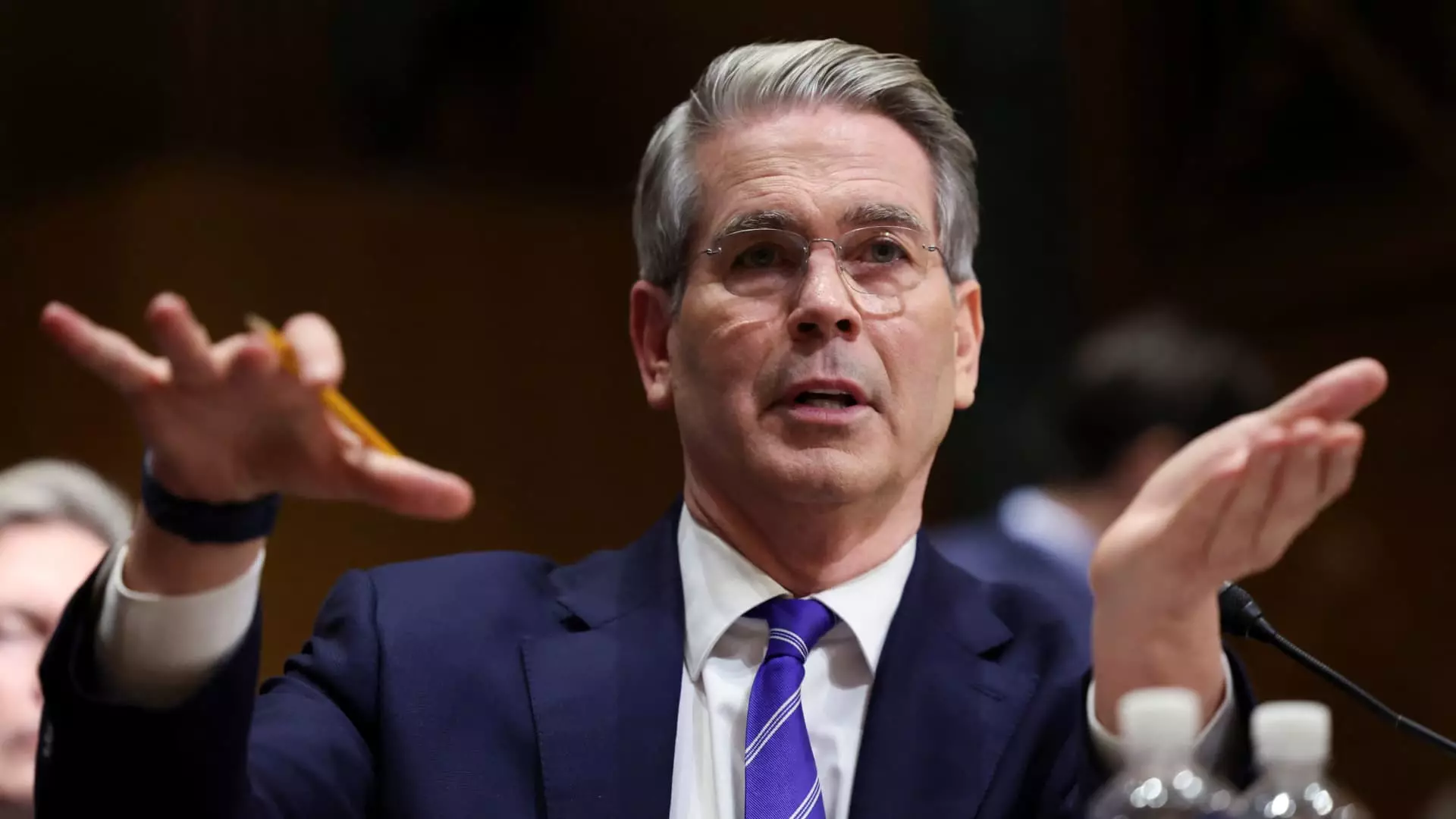In the swirling maelstrom of global economics, the ongoing trade conflict between the United States and China reveals itself to be more than just an economic strategy; it is a playbook for nationalistic fervor and protectionist debates. Treasury Secretary Scott Bessent recently proclaimed a supposed U.S. superiority in this escalating saga, suggesting that China is bluffing with “a pair of twos.” The dismissal of China’s strategic motives belies the real complexity of this situation and illustrates a concerning trend in U.S. economic policy under the current administration.
The assertion that imposing tariffs will lead to a negotiation bonanza and ultimately a manufacturing renaissance in the U.S. is fraught with peril. The simplistic binary of exporting and importing misses the nuances woven into international trade. While Bessent may propose that the U.S. holds a winning hand, the vicious cycle stirred by trade wars can cause significant reverberations—both domestically and internationally.
Analyzing the Tariff Strategy
Bessent’s optimistic outlook hinges on one critical observation: that the U.S. exports a fraction of what it imports from China. However, reducing the complexities of reciprocal tariffs to sheer statistics overlooks the intricacies of global supply chains and the dependence of American industries on components sourced from China. Companies do not merely deal in binary transactions; they operate within an ecosystem that can fracture under tariffs. The backlash can lead to increased production costs, ultimately passed on to consumers, thereby negating the expected benefits of such policies.
While Bessent lauds Japan and other nations for their readiness to negotiate, the consequences of aggressive tariff measures cannot be ignored. By portraying tariffs as “good deals” that will drive job creation back to the U.S., there lies an inherent danger: the belief that such a simplistic solution exists in a world riddled with complexity.
Illusion of Gains
The alluring narrative of transforming tariffs into job creation and increased revenues poses a troubling contradiction. The prediction that these measures will enable a manufacturing revival in the U.S., while tariffs supposedly decrease akin to “a melting ice cube,” fails to address a core concern: the short-term pain of an economy misaligned with trade realities.
As American companies absorb tariffs and adjust their supply chains, the jobs intended to be safeguarded may become casualties of a retrofitted economic strategy. It’s all too simplistic to view tariffs as an immediate boon without recognizing the potential for disillusionment as businesses struggle to adapt.
The willingness of 70 countries to engage in talks may seem promising, but it sets a precarious foundation when considering that mere negotiations cannot erase the strain created by entrenched economic disputes. Moreover, the very notion that one can negotiate out of a built-up resentment over trade imbalance echoes of hubris, especially when the consequence of failure is reverberating stress on the everyday worker.
The Path Forward: A Call for Pragmatism
The shadow of China’s stance—“fight to the end”—reminds us that a protracted trade war has implications far beyond economic statistics. In a world where such tensions can escalate into geopolitical conflicts, crafting policies that consider long-term impacts should take precedence over immediate gains.
As Secretary Bessent emphasizes the importance of addressing non-tariff barriers like currency manipulation, the focus ought to adjust beyond the simplistic framework of punishing China with tariffs. By fostering open communications and mutually beneficial trade agreements, the U.S. can aim to combat unfair trade practices while simultaneously enhancing its own economic standing.
Instead of indulging in a self-serving narrative of American superiority, a collective and cooperative approach might not only stabilize current markets but also lay the groundwork for sustained economic growth. The essence of trade shouldn’t pivot on who can wield the heaviest stick; rather, it should emphasize collaboration, ethical practices, and a balanced economic environment.
It is time to move beyond the rhetoric of winning and losing; trade should aspire to create value for everyone involved—encouraging cultures of innovation, fostering mutual respect, and ultimately, enhancing the global economy instead of tearing it apart.

Leave a Reply